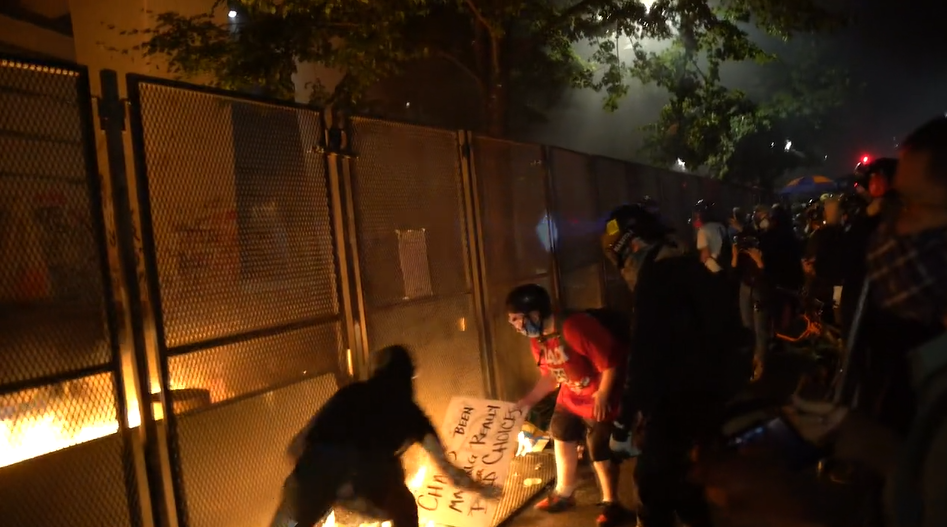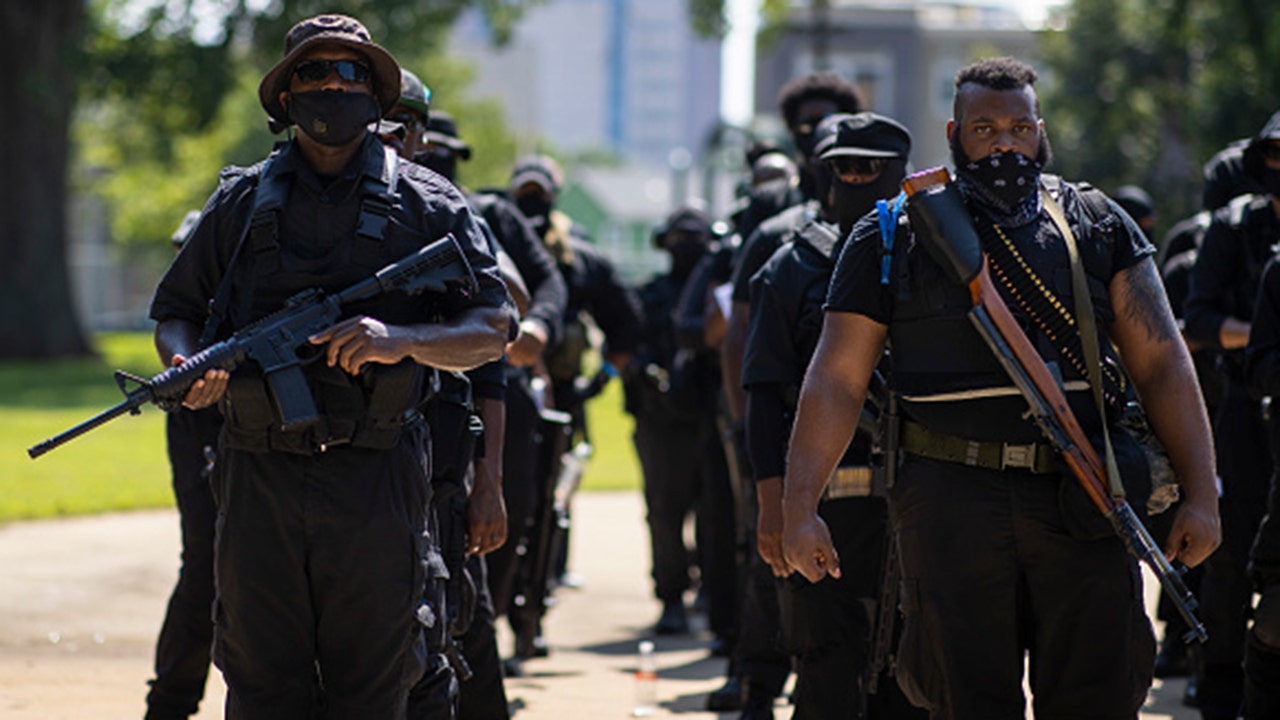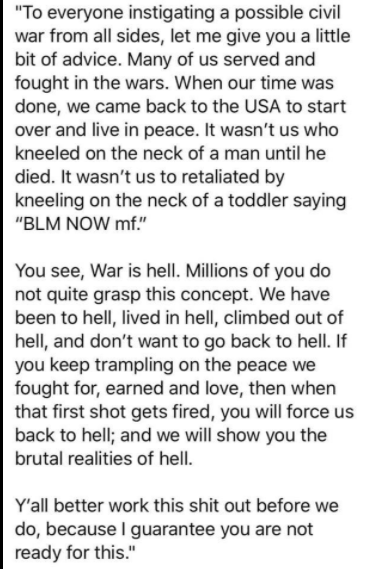Trump should pick Sowell for running mate.
Join the Hide community
Get access to live stream, lessons, the post exchange, and chat with other snipers.
Register
Download Gravity Ballistics
Get help to accurately calculate and scope your sniper rifle using real shooting data.

Install the app
How to install the app on iOS
Follow along with the video below to see how to install our site as a web app on your home screen.
Note: This feature may not be available in some browsers.
You are using an out of date browser. It may not display this or other websites correctly.
You should upgrade or use an alternative browser.
You should upgrade or use an alternative browser.
Maggie’s Motivational Pic Thread v2.0 - - New Rules - See Post #1
- Thread starter Snake-Eyes
- Start date
-
- Tags
- motivational pictures
No such thing. Dead is dead.
What is the difference between a true man and a coward???
The incident of the BLM thug kneeling on the toddler's neck, and the defensive shooting death of another BLM thug terrorizing a community with a rifle in Austin has got me asking this question. And then this video appeared in my stream that seems to explain everything...
Scene is from Arn the Knight Templar (2007)
Moral of that video clip:
Should've ended those dirtbags' breathing abilities when he had the chance. They already demonstrated their propensity to attack the weak and innocent. His horse paid the price for that error in judgment.
It is a reminder and motivation to stay vigilant. Reaffirm your priorities in life.
Remind your family to do the same.
You never know when you face the test, and who or how many will be there to administer it.
God Bless the USA. The current course of unrest must be stopped and reversed. There is no other option.
The only decisions remaining concern the "how".
Peacefully would be optimal, but I am not a diplomat.
I've actually seen that... When I said something I was told to go around. So I went around each of them and went right in the middle... They were not happy... or maybe it was the fuck you cunt, as I went between them
Similar situation. I chose to whistle like when we were moving the cows back in Canada. Then right through the middle.I've actually seen that... When I said something I was told to go around. So I went around each of them and went right in the middle... They were not happy... or maybe it was the fuck you cunt, as I went between them
Similar situation. I chose to whistle like when we were moving the cows back in Canada. Then right through the middle.
I ask if they need coffee and donuts.
A local mom and pop restaurant my family and I eat at regularly have almost the same sign posted on the cash register.
She (?) would know
Mom telling daughter, "Don't worry; you'll hit a growth spurt."
Best description I've read:Well, They never stood for anything sincere, they never built anything from the scratch and never seen war and sorrow.
It is truly easier to it destroy than to create.
"I'm seeing African American Federal Protective Service inspectors, twenty year's law enforcement officer, being called the N-word to their face for the first time in their careers, by a scrawny, pasty white booger-eating communist shithead. "

'Catatonic with Hate'
DHS so far has not allowed reporters to embed with the agents on their side of the Portland siege line to sample what the battle might be like for them. But one DHS employee who is there agreed to share impressions and experiences with CIS anonymously from the federal agent point of view...
 cis.org
cis.org
Best description I've read:
"I'm seeing African American Federal Protective Service inspectors, twenty year's law enforcement officer, being called the N-word to their face for the first time in their careers, by a scrawny, pasty white booger-eating communist shithead. "

'Catatonic with Hate'
DHS so far has not allowed reporters to embed with the agents on their side of the Portland siege line to sample what the battle might be like for them. But one DHS employee who is there agreed to share impressions and experiences with CIS anonymously from the federal agent point of view...cis.org
Seems like there is no difference between the Democrats of 2020 and the Democrats of 1920...
Tragic time travel isn't a reality. Bring those men back, show them what happened to their memorial and who did it then tell them what ever they decide to do is all good and legal.
These guys claim to be veterans.
"Gunshots erupted during a planned protest in Louisville, Ky., Saturday and three members of the heavily armed militia group, the “Not F---ing Around Coalition” (NFAC), were injured by shots fired from one of their own member's guns, police told Fox News. "
"One of the members of the NFAC spoke to throngs of protesters and said “we had a little accident, it happens,” the reporter said. "

 www.foxnews.com
www.foxnews.com
"Gunshots erupted during a planned protest in Louisville, Ky., Saturday and three members of the heavily armed militia group, the “Not F---ing Around Coalition” (NFAC), were injured by shots fired from one of their own member's guns, police told Fox News. "
"One of the members of the NFAC spoke to throngs of protesters and said “we had a little accident, it happens,” the reporter said. "

Louisville protests descend into chaos when armed protester accidentally shoots members of his group, injuring 3
Gunshots erupted during a planned protest in Louisville, Ky., Saturday and three members of the heavily armed militia group, the “Not F---ing Around Coalition” (NFAC), were injured by shots fired from one of their own member's guns, police told Fox News.
Just a quick scan and assess here. Left side guy doesn't have his rear sight flipped up and the guy with the SKS doesn't appear to be running his reloads on stripper clips. Poor form old boy.
These guys claim to be veterans.
"Gunshots erupted during a planned protest in Louisville, Ky., Saturday and three members of the heavily armed militia group, the “Not F---ing Around Coalition” (NFAC), were injured by shots fired from one of their own member's guns, police told Fox News. "
"One of the members of the NFAC spoke to throngs of protesters and said “we had a little accident, it happens,” the reporter said. "

Louisville protests descend into chaos when armed protester accidentally shoots members of his group, injuring 3
Gunshots erupted during a planned protest in Louisville, Ky., Saturday and three members of the heavily armed militia group, the “Not F---ing Around Coalition” (NFAC), were injured by shots fired from one of their own member's guns, police told Fox News.www.foxnews.com
They say we should hand over Texas to them or let them leave the USA. I wish them well and hope the door doesn't hit them on the ass on the way out.
View attachment 7385657
Just a quick scan and assess here. Left side guy doesn't have his rear sight flipped up and the guy with the SKS doesn't appear to be running his reloads on stripper clips. Poor form old boy.
Why am I reminded of this...?
Why am I reminded of this...?
Except those real men of the 54th would make mincemeat of the NFAC fools.
Gotta admire the stones of those old guys who just stood there and traded volleys of lead until one side lost their nerve and the other side finished them off with bayonets.Except those real men of the 54th would make mincemeat of the NFAC fools.
No penicillin or medivac back then either.
Except those real men of the 54th would make mincemeat of the NFAC fools.
And most of the men of the 54th Massachusetts were farmers and landowners who believed fiercely in traditional republican ideals and system of governance, liberty, and freedom from cult-like social movements that makes robots out of their followers. In short, they would have ran over the NFAC with bayonets alone...
Gotta admire the stones of those old guys who just stood there and traded volleys of lead until one side lost their nerve and the other side finished them off with bayonets.
No penicillin or medivac back then either.
No real painkillers either. Then you realize where the term "bite the bullet" came from.
It is all for show, they have no idea what they are doing.View attachment 7385657
Just a quick scan and assess here. Left side guy doesn't have his rear sight flipped up and the guy with the SKS doesn't appear to be running his reloads on stripper clips. Poor form old boy.
an militia with no training or tactical leader. a total debacle.
Anyone who drinks plain water is losing out on all of the other drinks that have water in them, but taste SO much better.......
Beer, wine and distilled liquor are hygroscopic, so they have water.
We are in agreement.
Hopefully their sign is spelled correctly.A local mom and pop restaurant my family and I eat at regularly have almost the same sign posted on the cash register.
Beer, wine and distilled liquor are hygroscopic, so they have water.
We are in agreement.
EXACTLY, why drink plain water when there are so many other forms of water that taste much better!!!
These guys claim to be veterans.
Veteran Knob Gobblers.
Similar threads
- Replies
- 0
- Views
- 44K
- Replies
- 64
- Views
- 21K








